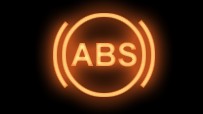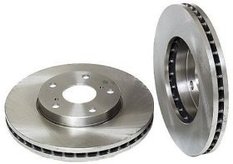Car Brake Problems
When car brake problems develop most often the driver will immediately investigate the issues. This is usually one condition a driver will not put off looking into. When you put your foot on the brake pedal and apply pressure you expect your vehicle to stop with authority. If this doesn’t happen a pleasant drive can turn into a safety nightmare.

Some drivers are known for putting off car repairs like regular maintenance. Things like oil changes, coolant flushes and tune-ups can seem unimportant when the car is running good.
Often drivers even put off diagnosing warning light problems such as airbag light and check engine lights, but few will ignore car brake problems. Let me use my sister as an example (sorry Sis).
I got into her car the other day and the check engine light was on. I asked her how long the light had been shinning in her face. She told me that it’s been about 10 days and she was meaning to talk to me about it. When this same young lady had a brake system problem she called me immediately so that I could diagnose it.
Some Common Car Brake Problems

A lot of times drivers will complain about the way the brake pedal feels when they apply the brakes. A sinking brake pedal can give you the feeling that the vehicle may not stop. A common cause of brake pedal fade (but not the only cause) is a braking system that is overheating.
Any braking system must be able to effectively handle the heat created by friction within the system. This tremendous amount of heat created by the rubbing brake surfaces must be conducted away from the pad and rotor and be absorbed by the out side air.
Automotive brakes that do not effectively dissipate heat can experience brake pedal fade during hard or continuous breaking. The linings of the pad can become glazed as well from this heat buildup. The rotor can also become glazed. When you have a glazed rotor and pads the friction action is greatly reduced. To the driver this will feel like the vehicle does not want to stop.
The way I prefer to correct this condition is to disassemble the front brakes and physically sand the glaze off of the friction material. For auto repair safety reasons you always want to wear a dust mask when doing this. On the rotor side either they will need to be resurfaced on a brake lathe or if they are composite rotors they may need to be replaced.
Getting to the Bottom of Car Braking Issues
The root cause of the overheated brakes and glazing issue will still need to be addressed after the repairs mentioned above are completed. The cause of overheated brakes can be traced back to a few different things. For one thing it could be the habits of the driver.
A 2 foot driver that constantly hovers their foot on the brake pedal can actually be applying the brakes slightly while driving. This can cause overheating problems because the brakes are continuously applied and they are not allowed to dissipate their heat as they would during normal operation.
Another possible cause of overheated brakes could also be traced back to problems with the braking system. If a caliper is binding and not fully releasing when the brake pedal is released the same results could happen as in the 2 foot driver scenario. When people have a binding brake caliper it also in most cases will cause other problems such as a pulling condition.
When inspecting brake pads and binding calipers are suspected you can often find glazed pads and rotors on only one side of the automobile. Also common with this car brake problem would be uneven wear comparing the inboard pad to the outboard one. If this subject interests you I have built a repair module on the you fix cars website that talks about car brake problems in-depth. Or you can head back to the homepage for this blog for more auto repair information articles.

